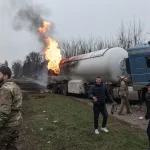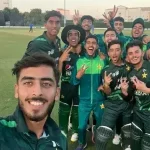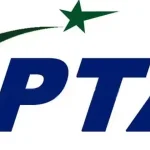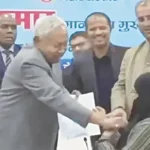Pakistan has pretty adequate relations with several other countries, particularly with Muslim nations. Turkey is one of them. Pakistan and Turkey have been close friends for over half a century, having a multidimensional relationship. Both nations have close historical cultural and also military relations. The clothing style of both countries in Central Asia also has common origins. The etymology of the word “Urdu” connects it back to the Turkish (Mughal) rail. Moreover, the common cultural effects on Pakistan and Turkey span many decades, as many Iranians and Turkish peoples ruled the Middle East and Central & South Asia. These historical ties further deepened under the President Tayyip Erdoğan’s Islamic-rooted political approach, as he termed Pakistan “home away from home”. He is the only foreign leader who has addressed Pakistani Parliament more than once, doing so three times. In 2016, it was President Erdoğan’s 7th visit to Pakistan.
In 1947, soon after the independence of Pakistan, Turkey established diplomatic relations. On 4th of March 1948 Quid-e-Azam, at the appointment of first Turkish ambassador stated that: ‘I really can assure you excellence that the Muslims of Pakistan will entertain sentiments of affection and esteem for your country and now Turkey and Pakistan both as free, sovereign and independent countries can strengthen their ties more and more for the good of both’.
In Joint Communiqué on 19 February 1954, issued in Ankara and Karachi; according to which Pakistan and Turkey pledged to closer cooperation in the economic, political, and cultural departments, and both nations will put their sincere efforts for development. At present, the number of agreements signed between both countries is more than 50.
Pakistan has long had military ties with Turkey. Pakistan air force officers are training in Turkey to upgrade their F-16 fleet. Pakistan and Turkey had signed a treaty of cooperation and friendship, on 2nd April 1954. Both countries have linked-up the US-led Central Treaty Organization (CENTO). The organization is aimed to support and strengthen military and deliberate long-term cooperation and counter the increase of communism, socialism and Soviet influences in the region. Relationships regarding defense are also very powerful between Pakistan and Turkey, consisting of a substantial portion of the Pakistan Navy’s fleet and joint practices. Turkey is currently a major arms seller to Pakistan. Turkey had previously purchased arms and also proceeded to buy parts of minor aerial weapons from Pakistan. As a consequence, the two nations have enjoyed strong military and diplomatic relations, which are now strengthening more towards economic cooperation.
In February 2007, Turkey started a trilateral negotiation process between the two states and Afghanistan. Following a visit by Turkish Foreign Minister Abdullah Gül to Islamabad, Pakistani deputy Humair Hayat Khan Rokhri confirmed:
According to Gül
“We are all brothers who need to support each other, in order to bring security and stability to the region.”
A meeting of all three countries’ leaders held on 1st April 2009, was carried out as part of the trilateral Ankara cooperation process. The three countries committed to increasing coordination of their political, intelligence and military ties in the fight against terrorism and militancy. Chairman of the Turkish – Pakistani Friendship Association Burhan Kayatürk had stated:
“It is the first time that the military and intelligence chiefs of Afghanistan and Pakistan have attended the trilateral summit, which is a reflection of the deeper commitment to work together.”
Pakistan’s stance on Kashmir conflict is openly supported by Turkey. It also recognizes Jammu and Kashmir as part of Pakistan and the Turkish ambassador spent a week in the capital of Azad Kashmir (Pakistani Administrated Kashmir) Muzaffarabad, to show Turkish solidarity with Pakistan. In the recent address of Erdoğan in Parliament, he said:
“We are well known for the pain and problems of Kashmiris and we condemn the brutality of India in Kashmir”.
Pakistan has reciprocated by supporting Turkey over the Northern Cyprus issue. In 1963, when Pakistan’s Foreign Minister Zulfiqar Ali Bhutto attended UN General Assembly session, he represented the full concern and commitment of the Pakistani nation for their Turkish brethren. Moreover, In November 1974 and November 1976, Pakistan again supported Turkey at UN General Assembly debate on Cyprus.
Turkey also maintains military and political support during the wars with India. Both nations have sought to expand cooperation to fight terrorism. Large numbers of Turks volunteered to fight for Pakistan against India and a number of Nurses to serve Pakistan flew in from there. In December 1965, President Ayub Khan visited Turkey and expressed his profound gratitude to the Turkish President Gural for the moral and material support provided to Pakistan during Indo-Pak war of 1965.
‘Regional Co-Operation for Development’ was an organization created by Pakistan, Turkey & Iran to set up cooperation in all kinds of fields. On March 15, 1965, all three countries agreed to develop RCD joint shipping lines. In 1965, Pakistan and Turkey started a program for technical education. First RCD flight of Pakistan International Airline (PIA) between Karachi, Tehran and Istanbul started in November 1966. On July 1967, an RCD joint venture was inaugurated in Karachi for printing bank notes. It was a key step towards the expansion of intraregional trade.
Pakistan and Turkey are founding members of ECO (Economic Cooperation Organization) and also part of the Developing 8 Countries (D-8) organization. A highly remarkable venture was inaugurated between Pakistan, Iran, and Turkey in 2009 as a project of ECO. At the occasion of 14th August; Prime Minister of Pakistan Yousuf Raza Gilani launched container train service between Islamabad and Istanbul. The first train carried twenty containers with a capacity of around 750 tons and traveled 6,500 km (4,000 miles) from Islamabad, passing through Balochistan, then Tehran, Iran and on to Istanbul in two weeks. At that time, Minister for Railways Ghulam Ahmad Bilour had said,
“After the trial of the container train service, a passenger train will be launched”. It is also expected that the route will be linked to Europe and Central Asia, to carry passengers.
Both countries have worked together to notably proliferation investments and trades, especially in telecommunications, transport, tourism, manufacturing and several other industries. Both nations have pursued to increase the volume of bilateral trade to more than $1 billion from $690 million by 2010. Pakistan’s exports to Turkey include sesame, rice, leather, seeds, fabrics, textiles, medical equipment and sports goods. Turkish exports include wheat, lentils, chickpeas, chemicals, diesel, machinery, transport vehicles and energy products. Turkey’s private corporations also have invested appreciably in construction and industrial projects developing highways, canals, and pipelines. Mutually both countries are negotiating Turkey – Pakistan Free Trade Agreement, which is aiming to increase the bilateral trade volume to $10 billion by 2020.
After the 2005 earthquake, Turkey helped the Pakistani people in the affected areas. Turkey announced a $150 million package for the quake victims. A mosque was constructed by Turkish aid organization Kizilay in Azad Kashmir region. An Ottoman Style mosque is being built in Pakistan’s Bagh District. Pakistan also supplied aid to Turkey in the aftermath of the 1999 earthquake and during 2011 Van earthquake.
Muhammad Ali Jinnah was regarded with great admiration as a great leader in Turkey and a major Caddesi of the capital of Turkey, Ankara and the “Cinnah Caddesi” is named after him, while roads in Islamabad, Karachi, Lahore, Peshawar, and Larkana are named after Mustafa Kemal Atatürk. Rajab Tayyip Erdoğan was awarded the “Nishan-e-Pakistan” on 26th October 2009. Erdoğan said that “Pakistan had always occupied a special place in the hearts and minds of the Turkish government and people”.
Pakistan has an embassy in the Capital of Turkey, Ankara and Consulate General in Istanbul and the honorary consulate in Izmir. And Turkey has an embassy in Islamabad and Consulate General in Karachi and honorary consulates in Lahore, Sialkot, Peshawar and Faisalabad. Due to the religious, cultural, historical and geopolitical links between these countries, bilateral relations are becoming closer increasingly.






